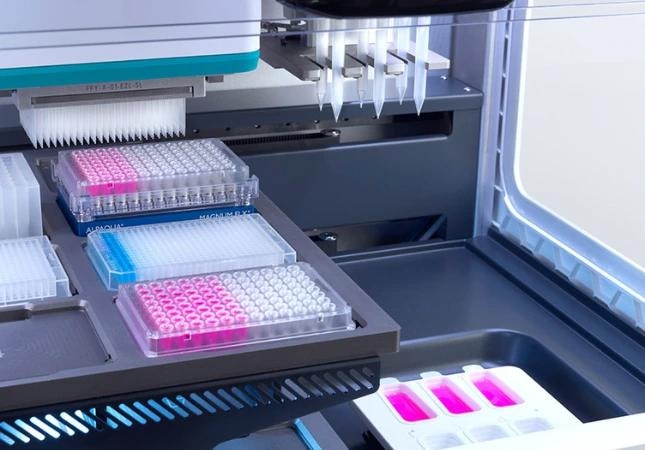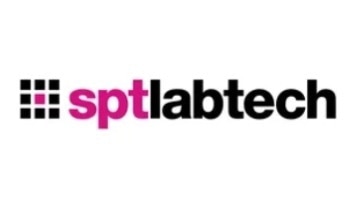Laboratory Developed Tests (LDTs) are specialized diagnostic tests designed, manufactured, and utilized within one laboratory. These tests meet critical needs in healthcare, facilitating rapid and specialized diagnostics for a broad range of targets such as DNA, RNA, and proteins.
LDTs are frequently required to diagnose rare diseases and facilitate personalized medicine. They are particularly important when commercial tests are unavailable or impractical.
As they have a critical role in informing treatment decisions, LDTs must undergo rigorous validation to guarantee accuracy. This makes LDTs indispensable tools in modern healthcare.
The role of LDTs in personalized cancer treatment
LDTs that utilize Next-Generation Sequencing (NGS) have gained huge significance as companion diagnostics for personalized cancer care. These NGS-driven LDTs can be used to identify specific genetic markers in patients, allowing healthcare providers to tailor treatments more effectively.
NGS technology enables the evaluation of multiple genes in one assay, which removes the need for multiple tests and delivers a quicker and cheaper diagnostic solution while extending the utility of valuable clinical samples.
Automated liquid handling boosts the efficiency and precision of LDTs
Automated liquid handling solutions are transforming how laboratories carry out NGS-driven LDTs, significantly improving efficiency and accuracy. These automated systems are an economical way to help laboratories fulfill ambitious Key Performance Indicators (KPIs).

Image Credit: SPT Labtech
Automating tedious and laborious pipetting tasks minimizes human error and frees up skilled personnel to conduct other essential activities. This enables more streamlined and efficient workflows, minimizing turnaround times and providing patients with results in less time.
Automation enables laboratories to effortlessly scale their operations to satisfy future testing demands, allowing adaptability in the ever-developing fields of personalized medicine and cancer care.
Key considerations when selecting an automated liquid handling solution for LDTs
As laboratories that operate at high throughput levels encounter pressure to maintain quality and fulfill regulatory requirements, selecting an automated liquid handling solution for LDTs demands consideration of the following aspects:
- Ease of use: A complicated system can hinder operations and increase the likelihood of errors occurring. A user-friendly interface and simple operation are fundamental to efficiency.
- Access to service and support: the extent of technical support and maintenance services the vendor provides should be considered. This can be vital for reducing downtime and guaranteeing the reliability and longevity of the system.
- Versatility: As LDTs continue to develop, it is crucial to have a flexible system that can adapt to new methods and assays. This is particularly important for laboratories that plan to expand into new areas of testing.
- Regulatory compliance: A new system must satisfy all LDT regulatory requirements. This may include specific quality control and data reporting features.
Conclusion
Automated liquid handling systems have been demonstrated to be a revolutionary technology in Laboratory Developed Tests (LDTs), particularly those that employ Next-Generation Sequencing (NGS) for personalized cancer care.
By improving efficiency and accuracy and providing scalable solutions, these systems allow laboratories to fulfill current and future challenges more effectively.
However, due to the high stakes and strict regulations associated with LDTs, laboratories must make well-informed choices for implementing automated solutions.
Choosing the correct system enhances the quality of diagnostics and enables laboratories to be adaptive and agile in a fast-advancing healthcare environment.
References and further reading
- FDA 2023, Laboratory Developed Tests, FDA https://www.fda.gov/medical-devices/in-vitro-diagnostics/laboratory-developed-tests
- Pallavi Upadhyay PhD 2022, Current Challenges Facing Lab Developed Tests, Today’s Clinical Lab https://www.clinicallab.com/trends/clinical-lab-business-management/current-challenges-facing-lab-developed-tests-26502
About SPT Labtech
SPT Labtech designs and manufactures robust, reliable and easy-to-use solutions for life science. We enable life scientists through collaboration, deep application knowledge, and leading engineering to accelerate research and make a difference together. We offer a portfolio of products within sample management, liquid handling, and multiplexed detection that minimize assay volumes, reduce material handling costs and put the discovery tools back in the hands of the scientist.
At the heart of what we do
Many of our innovations have been born out of the desire to create solutions to existing customer problems; and it’s this ethos that drives SPT Labtech’s R&D efforts. Our strengths come from the trust our customers have with us to develop truly unique, automated technologies to meet their needs. We combine cutting edge science with first-rate engineering to put customers at the heart of everything we do.
A problem-solving state of mind
The substantial breadth of expertise within our company enables us to be involved in the full life cycle of our products from the initial design concept, mechanical and software engineering and prototyping, to final manufacture and sale. These qualities allow us to offer the best possible technical and mechanical support to all the equipment that we supply, hence maintaining excellent client relationships.
Sponsored Content Policy: News-Medical.net publishes articles and related content that may be derived from sources where we have existing commercial relationships, provided such content adds value to the core editorial ethos of News-Medical.Net which is to educate and inform site visitors interested in medical research, science, medical devices and treatments.